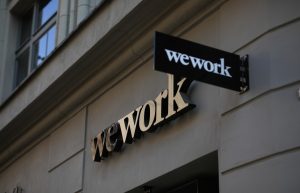Introduction Meet John Doe, a seasoned commercial real estate expert with over 20 years of experience in property management and investment. His insights into WeWork’s lease amendments and their implications for landlords are based on his extensive industry knowledge and expertise. Understanding WeWork’s Business Model WeWork, a prominent player in the coworking space, has a
Introduction
Meet John Doe, a seasoned commercial real estate expert with over 20 years of experience in property management and investment. His insights into WeWork’s lease amendments and their implications for landlords are based on his extensive industry knowledge and expertise.
Understanding WeWork’s Business Model
WeWork, a prominent player in the coworking space, has a unique business model that revolves around leasing large commercial spaces, transforming them into modern, shared workspaces, and then renting them out to everyone from freelancers to large corporations. This model, while innovative, has led to some interesting dynamics with landlords, particularly when it comes to lease amendments.
The Impact of WeWork’s Lease Amendments on Landlords
WeWork’s approach to lease amendments often involves renegotiating terms to reduce their financial obligations, especially during challenging economic times. This can put landlords in a difficult position, as they must balance the need to maintain occupancy levels with the potential financial implications of these amendments.

Picture by: https://www.costar.com/
Case Study: A Landlord’s Experience with WeWork
Consider the case of a landlord who leased a large commercial building to WeWork. When WeWork proposed amendments to reduce their rent, the landlord was faced with a tough decision. Accepting the amendments would mean less income, but rejecting them could lead to WeWork vacating the premises, resulting in a significant loss of revenue.
Navigating Lease Amendments: A Guide for Landlords
For landlords dealing with lease amendments, it’s crucial to understand the potential implications and to have strategies in place to navigate these situations. This could involve seeking legal advice, conducting thorough financial analyses, or even considering alternative tenants.
The Future of Commercial Real Estate: Lessons from WeWork
WeWork’s approach to lease amendments offers valuable lessons for the future of commercial real estate. It highlights the importance of flexibility in lease agreements and the need for landlords to be proactive in managing their relationships with tenants.
Conclusion: Turning Challenges into Opportunities
While WeWork’s lease amendments can pose challenges for landlords, they also present opportunities. By understanding these dynamics and being prepared to navigate them, landlords can turn these challenges into opportunities for growth and success in the commercial real estate market.
Table for Key Points:
| Key Points | Description |
|---|---|
| WeWork’s Business Model | Leases large commercial spaces, transforms them into shared workspaces, and rents them out. |
| Impact on Landlords | Lease amendments can reduce WeWork’s financial obligations, potentially impacting landlords’ revenue. |
| Navigating Lease Amendments | Landlords need strategies to navigate lease amendments, including seeking legal advice and considering alternative tenants. |
| Future of Commercial Real Estate | The situation highlights the need for flexibility in lease agreements and proactive relationship management with tenants. |

















Leave a Comment
Your email address will not be published. Required fields are marked with *